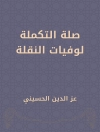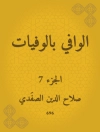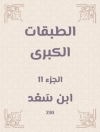In ‘The Redemption of David Corson’ by Charles Frederic Goss, the reader is transported to the post-Civil War South where the protagonist, David Corson, grapples with themes of forgiveness, redemption, and the complexities of human nature. Goss’ writing style is rich in detail and emotion, capturing the essence of the time period and the internal struggles of his characters. The novel is a blend of historical fiction and moral reflection, making it a thought-provoking read for those interested in exploring the depths of the human heart. Goss skillfully weaves together a narrative that is both captivating and deeply moving, leaving readers contemplating the power of forgiveness and the capacity for change in even the most hardened of hearts. Through David Corson’s journey, Goss delivers a powerful message about the transformative power of love and the possibility of redemption for all. ‘The Redemption of David Corson’ is a must-read for anyone seeking a captivating story with profound moral insight.
Despre autor
Charles Frederic Goss (1852-1930) was an American novelist, clergyman, and social reformer, renowned for his singular contribution to literature in the form of his most celebrated novel, ‘The Redemption of David Corson’ (1900). Born on October 17, 1852, in Waverly, Maryland, he was inclined towards spiritual and societal issues from an early age, which later found expression in his works. Goss pursued theological studies and eventually became an ordained minister, a vocation that infused his writing with profound moral and ethical questions, resonating with themes of personal transformation and redemption.
His notable literary work, ‘The Redemption of David Corson, ‘ is a fine example of his narrative style that integrates elements of realism and romanticism, reflecting the social and religious mores of his time. The novel gained wide popularity and acclaim for its engaging exploration of human fallibility and the potential for spiritual rebirth. Goss’ portrayal of the protagonist’s journey from skepticism to faith mirrors the conflicts between modernity and tradition, a struggle pertinent to the turn-of-the-century America. As a social commentator through his creative endeavors, Goss explored the complex interplay between individual character and societal pressures, making his contribution significant to the didactic aims of American fiction in the early 20th century. His works continue to be of scholarly interest for their depiction of the cultural and religious landscape of his era.












